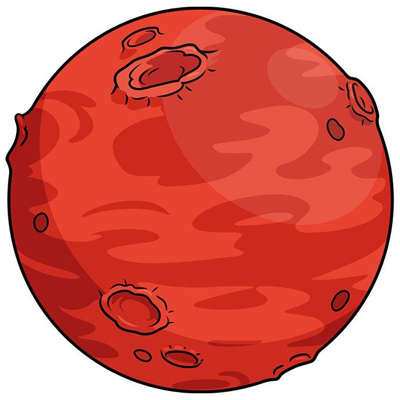That by not being ridiculously overtly bigoted, they have actually interrogated and rejected their own bigotry. The former is basic and mostly relies on social conditioning. The latter requires reading history and people who are criticizing things with which you may identify and therefore take very personally. The latter is not taught in school and school does not provide the tools (outside of literacy) to do so, so it’s a difficult, painful, abd regrettably rare thing to see, usually requiring sone trauma to change.
Going through the process of discovering I was trans and surrounding myself with trans people really made me re-examine how little work I’d done on issues of race, among other things. So many of the little passive aggressive things I found myself getting annoyed at cis people doing, I also found myself doing to people of color. Nothing particularly awful, but definitely inconsiderate.
In this regard I’m probably an ignorant simpleton, so what would be an example of common behavior that people think is fine but is in fact inconsiderate or offensive to others?
100%! And it’s structurally ingrained, so it involves a very un-fun process of relearning certain habits that don’t feel that bad until you force doses of empathy on yourself, the latter of which I think is in the neighborhood of your experience. It means you have to criticize, forgive, and change yourself, which I personally don’t enjoy even though it’s so important.
PS happy pride!
Pffffft maybe you, but I don’t have cognitive biases! Anchor pricing doesn’t work on me either because, raises nose, I know all about it.
Nearly anything abouth Pre-Columbian North and South America. Turns out, there was no homogeneous “Native” culture, just as there was no “European” culture. Every different group had their own traditions and stories. They all were complex people, not one-dimensional savages or pacifists. We should simply view them as any other people.
That the 13th amendment outlawed slavery.
That looking too closely at the screen will blind you or damage your eyes. This myth originated decades ago in the 1960s from an advertisement by a television manufacturer. Basically in 1967 General Electric reported that their color TVs were emitting too many x-rays due to a factory error, so health officials recommended keeping children and pretty much anyone else at a safe distance from the screen. The problem was soon resolved, but the myth endured.
If you ask me I would say that x-ray radiation has little to do with going blind, I have no idea if radiation can actually make you blind, but it’s funny how somehow eye diseases got in the way as the only possible consequences in the myth just because we use our eyes to watch TV.
CRT screens generate bremsstrahlung (x-rays) from slowing electrons, so the front piece of glass is normally made of lead glass, or barium-strontium glass to block it.
After the General Electric incident, testing showed that nearly every manufacturers TVs were emitting too many x-rays. This led to the recommendation to stay 6 ft. away from the TV when it was on. The FDA then later imposed limits on how much radiation a TV was allowed to emit.
With the these regulations, if you were to absorb all x-rays from a CRT for 2 hours a day, every day, you would get 320 millirem per year (comparable to the average US background radiation of 310 millirem per year). See here, as well as this article.
Edit: Also, significant doses of x-rays can blind you. Radiologists in medicine particularly have to shield against it, since they are exposed to it every day, and exposure builds up. See here and here.
Edit again: Wasn’t paying enough attention. That last source talks about ionizing radiation specifically, so not x-rays.Good ol’ desktop particle accelerators.
Mmm. I worked on CRT screens when I was in the US Navy and had some CRT monitors in the past.
After a long session, my eyeballs 100% felt ‘burnt’ inside.
That the first amendment and free speech are the same thing
“The human eye can only see 30 [or 60] frames per second.” Truth is, there are some events only 1ms long that a human eye can see, so the real upper limit is [edit: at least] 1000 frames per second. There are diminishing returns, but there is plenty to be gained by getting to at least a significant fraction of that limit.
so the real upper limit is 1000 frames per second.
This is basically the same misconception just kicked further down the road. The truth is that the human eye simply does not see in any way similarly to the way a camera sees and can’t be compared. There is no upper limit.
There certainly is a limit. The sensitivity of light-sensitive cells is finite, the speed of transfer through the optics nerve is finite, and the speed with which information can be processed is finite.
Furthermore it needs to be synced to at least some extend, so information needs to be discarded to limit noise, echos and ghosts, not unlike how VSync limits what can be displayed.
It’s more advanced than that, variable and individual, but there certainly are limits. I doubt that the “eye framerate” could go over 1000 fps in any way other than noise.
There is not a limit in anything similar to framerate.
The eye-brain system is totally analog. The shortest perceivable events have to do with how bright they are and how depleted the photo-receptors are in your retina. You could see a single 1/1000s pulse in a dark room but a 1kHz square wave would appear to be a continuous light.
And even if that were true, you would still benefit from a higher framerate because a) in games, you get lower input latency, and b) modern displays have an aweful lot of persistence blur which causes things in motion to appear less sharp. This effect is smaller the higher your framerate is.
That “Nike” rhymes with “Bike”.
I will start pronouncing bike like nike
Wait, it’s not pronounced like that?
No, it’s pronounced in two syllables, as so: “Ni-key”, with the first syllable pronouncing the I as in the word “I”. It’s named after the Greek goddess of victory.
Ok, i pronounced Nike wrong for entirety of my life. Thanks for info.
I like pointing people to how they pronounce “Penelope”, it’s a similar thing. Although calling people with that name ~“Penny-Lobe” would be fun!
Now the question remains: will you pronounce the “Bi” of “Bike” like “Be” or “By”? :D
True, it doesn’t rhyme with “Nike”. It does cough through the tough bough, though
I always think about when I was taught about taste and the human tongue back in grade school, they had these diagrams about zones on the tongue corresponding to sweet, sour, bitter, etc. like a “taste map”. I’m not sure how many generations were taught about it but turns out it just isn’t true at all. So, not like it’s important but you got a lot of misinformed folks out there in regards to taste lol
That always confused me as a child, since it was super easy to just test it for yourself. Turned out salt tasted salty regardless of where on your tongue it was, the same for the rest of the flavors.
Yup I remember thinking to myself at the time that I must be tasting incorrectly or somehow my tongue is different from everyone else lol.
I wonder why they teach it too. Why teach misleading information that has no benefit but give people a wrong impression on how taste works
Most school science is oversimplification by design. It’s part of the learning process. Yo first learn colors, then when you are ready can learn about wavelengths, color spaces, biology of the eye, color psicology and many many other knowledge fields.
Even when you get into the anatomy of the eye you get “false” information, like the “perfect” cones that only percibe one color, or the misconception that every color is equal. More advanced education gives you more context and nuances.
In the taste and tongue case can be useful to explain that senses are the product of discrete sensors. That you don’t taste with your tongue but with specialized little taste buds. The different concentrations are mostly real, so the tongue map is a first step, even being so so far from the objetive and complex truth.
The problem is people that think they only need whatever high school education they got to be experts in pandemics, gender, biological sex, business, economics, history, politics and everything else.
Take note that I’m not only talking about a formal education. You can really learn a lot (most things? Maybe everything?) by yourself. But you have to be critical with your sources. You have to know how to learn. You have to understand how little you know about everything and how much you still have to learn.
Most “do your own research” people in the internet do not do actual research, don’t know how to do research and I don believe they know what research is.
I guess a combination of things. Bad early science that was easy to present in a little diagram. Then when it’s disproved, nothing similar to replace it with but the unglamorous fact that it all just sort of tastes the same.
For anyone interested https://en.wikipedia.org/wiki/Taste#Functional_structure
Wait does that mean I’m just dumb?
Man I was taught this shit when I got my education degree then later learned it’s bullshit. Made me so mad
Thinking that there are different learning styles probably helps poor teachers develop better content though.
… people say they have visual photographic memories, and I know musicians who can sit at a piano and play a song they only heard one time. But I don’t have any idea of the percentage of people who have these talents.
With !neurodivergence@beehaw.org you can clearly find patterns of minds who have problems with language processing. I personally do better with reading than I do auditory language.
the internet is full of people with problems with language processing 😃
Exactly.
Birds!
That the average person will swallow 8 spiders a year in their in their sleep.
Spiders Georg really threw the average off
Every one knows that its closer to 1000 spiders.
At the risk of upsetting people, most if not all religions. They can’t all be right.
They however can all be wrong…
I think that a lot of Atheists oversimplify religion. (NB: I’m Atheist myself.)
“True” and “false” only apply to statements about reality (epistemic). And sure, religion has a lot of them: “God exists”, “if you fornicate you’ll go to Hell”, “the world was created in seven days” etc. I think that most of them are false.
However a religion isn’t just its epistemic statements. It’s also morals, practices/rituals, and a community. Those things cannot be true or false, because they are not statements about reality. You need another ground to refer to them, as “good” vs. “bad” (deontic).
Yeah, but atheism does not mean nihilism. It doesn’t even mean opposing religions in general. It simply means you do not believe in a higher (or multiple) being often referred to as “god”.
Do I believe in the power of love? Yes! Do I spiritually put my family and friends over anything else? Yes! Do I believe that I need to help people, even though it is not beneficial for me? Yes! Do I believe that placebo works? Yes! …
I’m aware - and that’s part of my reasoning.
Atheism itself isn’t even a whole set of epistemic statements. It’s lack of belief in one statement. It doesn’t imply any sort set of values (like nihilism, secular humanism, satanism… or even the ones from the religions), nor give you any practice (no mass, no “it’s Salah time, drop what you’re doing for a prayer”), nor it makes you part of a community (much more than “we don’t believe in centaurs, we should hang around togerther” would).
And Atheists often transpose that into religion, oversimplifying it into “you believe in one or more gods”. But religion was never just that, it’s a lot more things. And most of those things can be good or bad, healthy or unhealthy, but not true or false.
I agree, but I’m not sure where someone stated something like this in this thread? Especially because the initial post followed a completely different logical reasoning.
OP asked “something many people believe but is not true”. The other poster replied “religion”. I’m showing that religion contains things that are not true, but religion as a whole cannot be true or false.
I have the same thought, and is the primary reason why I’m agnostic. I commented this elsewhere in this thread that might be relevant here too:
I’m an agnostic and I read this book called “The God Theory” by Bernard Haisch. The author is a man of science and approaches this problem from a (semi) scientific perspective.
Over the course of the book, he makes hypotheses and challenges them and eventually arrives at a theory that seems a workable explanation of the state of the world and religion in general.
It’s a very interesting read and I would 100% recommend it.
haha it depends, for religious people their credence is everything in their life, is their true. Of course I am with development of reason and science, but, as Adorno said once, if you retire a system of credence from people who have not known something more than religion, their entire life loose all its content… that’s why I also learned to be more shy to argue about others people religious feelings, believings, because it is something very respected and symbolized. Also, Hegel said that religious thought is like a “phase” of “society thought”, a phase that has be to analized and lived by every person (and lived by the society itself)…
Yea I more or less agree with that sentiment. I myself am an athiest but I view religion in general as a coping mechanism, and real or not if you take away coping mechanisms then you risk doing actual harm to people(psychologically), which is why I try to be as anti-evangelical and secular as I can. I just wish people would stop using it as justification for the shitty things they do. I wouldn’t mind more people thinking like I do but they have to come to that conclusion on their own.
They are good drivers.
Hey now
People believe that picking 1, 2, 3, 4, 5, 6 as your lottery ticket numbers is insane, because that would have a insanely low/lucky chance of being picked like that. If all numbers are chosen randomly, it is the same chance. No matter any combination of any numbers chosen, 1 ticket has 1 in 13,983,816 chance of being the jackpot numbers. (For US Powerball, specifically)
However, don’t the odds of splitting your winnings increase if you pick something more likely to be chosen by others?
Well yeah, but splitting winnings is secondary to actually winning. With the amount of people who religiously avoid sequential numbers, I guess you’d have less odds for picking it with someone? 'Cause at least here, the quick lotto ticket where they pick numbers for you avoids sequential numbers for this very brain worm that isn’t true.


























